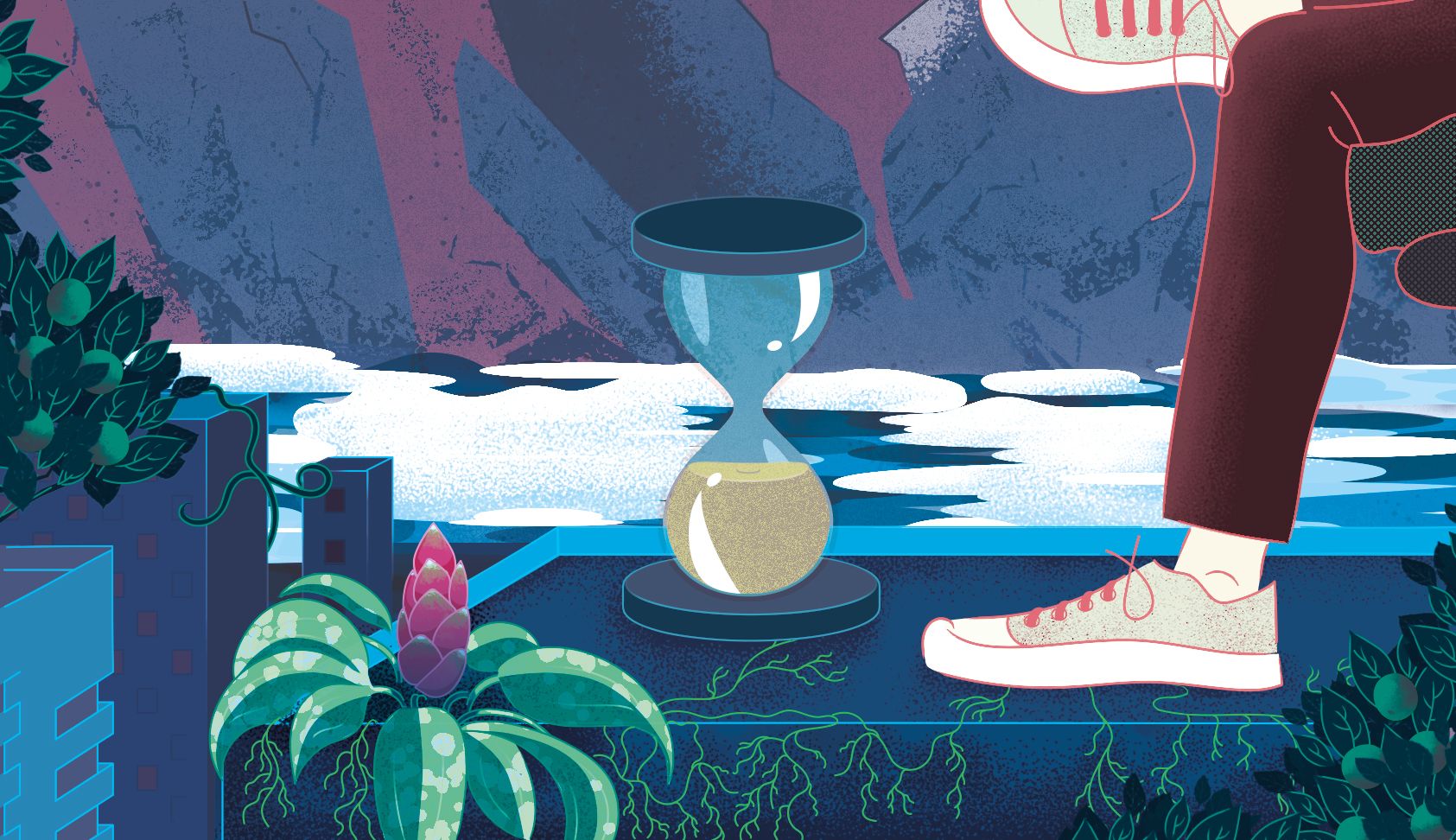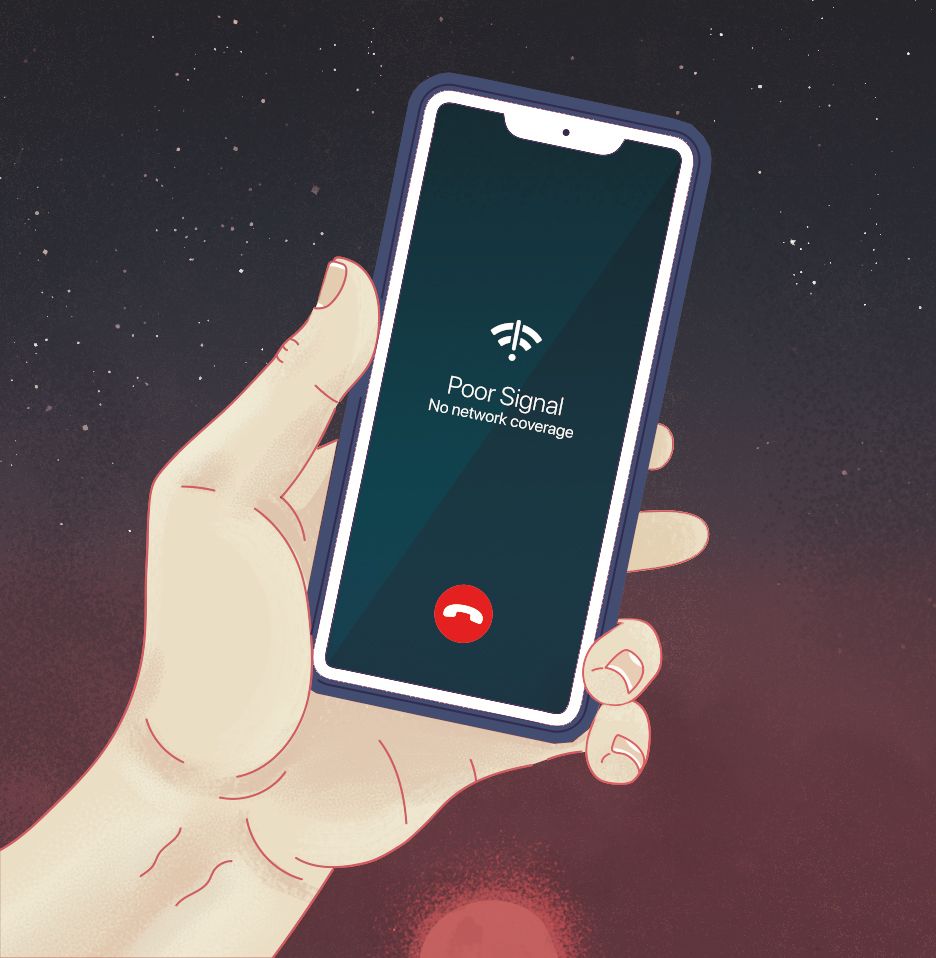On the Phone with Beethoven

One day last winter, I received an unexpected call, from someone whose voice was deep, somewhat gruff, and whose accent decidedly German …
I greet you!
I looked at my phone; the number was undisclosed.
Beethoven! Beethoven! Beethoven!
Of course, I couldn’t believe this really was the great composer on the line, but I set the phone to record nevertheless.
Well, I will call some other time –
No, wait! I’m here. Goodness! Ummm … Oh, my goodness!
You want to know something about my present situation?
Whatever … I mean, yes, please!
Well, on the whole it is not at all bad.
Good. I mean, I am very glad to hear that. Ummm … can you hear me?
Of course.
So your … your health has improved since …
I am much better now and I hope that this improvement will continue.
Excellent. Are you still composing, may I ask?
I live entirely in my music; and hardly have I completed one composition than I have already begun another. At my present rate of composing, I often produce three or four works at the same time.
What are you at work on right now?
I am composing three new symphonies, one of which is already finished.
Terrific. I wonder if it would be possible for you to send the score …
For the moment the uncertainty of the postal arrangements prevents me from dispatching any manuscripts to you.
A pity. Otherwise the piece could perhaps have been played at the Proms this year, when we’re celebrating your 250th birthday.
It is a peculiar feeling to see and to hear oneself praised and at the same time to realise one’s own inferiority as fully as I do.
But –
The true artist has no pride. He sees unfortunately that art has no limits; he has a vague awareness of how far he is from reaching his goal; and, while others may perhaps be admiring him, he laments the fact that he has not yet reached the point whither his better genius only lights the way for him like a distant sun.
Indeed. Could we turn to considering some of the works you composed here on earth, works that will be presented at the Proms?
Take my advice and on each occasion have two symphonies performed – that is better than having bits and pieces.
Oh … Perhaps I should tell you that this whole season is to kick off with a mash-up of all your symphonies, created for the occasion by Iain Farrington.
Well, that will suit me too.
Thank you for that. To have gone against your wishes –
You have not offended me.
Good. Thank you. If I could go on to ask you about these symphonies of yours …
Please do so.
The Seventh, then. Would you like to say a few words about that great work?
The Symphony in A?
Indeed.
The business connected with this symphony is very distasteful to me. Neither the engraved parts nor the score are faultless. A list of all the mistakes without exception will have to be printed and dispatched. The most unskilled copyist would have copied the score exactly as it has now been engraved; so far, such a defective, imperfect version of a work composed by me has never appeared in this fashion in engraved form –
This is all most regrettable, but I was hoping to have from you some recollection of how you came to write the work.
My kingdom is in the air. As the wind often does, so do harmonies whirl around me, and so do things often whirl about too in my soul.

Reenie Basova/BBC
Reenie Basova/BBC
Thank you, but is there something more specific you could say, about the symphony’s form and meaning?
A more difficult question could not be put to me – and I prefer to leave it unanswered.
Well, let me try another approach. You will no doubt be familiar with Wagner’s description of this symphony as ‘the apotheosis of the dance’.
Ha, ha, that makes me laugh!
Oh. Right. Then let me ask you about Leonore, the rarely performed first version of your opera, to be included in this season’s opening week.
Please be so kind as to check the parts for me.
I’m afraid it’s a little late for that, as what we’re to hear is a spectacular recording from the 1997 Proms. But let me ask you about the subject, of marital love, which would have had a personal resonance for you.
And why?
Simply because the possibilities of marriage, of finding a life partner, were so much on your mind at the time, and a piece of music will surely reflect how the composer was feeling when writing it.
You don’t believe that, do you?
Ummm –
One thing more. I know that the text is extremely bad. But once one has thought out a whole work which is based even on a bad text, it is difficult to prevent this whole from being destroyed if individual alterations are made here and there.
I’m sure –
“Continue to raise yourself higher and higher into the divine realm of art … Unfortunately we are dragged down from the supernatural element in art only too rudely into the earthly and human sides of life.”
I prefer to set to music the works of poets such as Homer, Klopstock and Schiller.
Which brings us back to your symphonies, of course. I should tell you that all nine –
One hundred and thirty.
I mean the nine that we know of here –
I am here and not there!
Yes … all nine will be played at the Proms, along with other major works of yours. And we’ll be hearing some great musicians performing your music. Just among pianists we have Murray Perahia, Leif Ove Andsnes … And Mitsuko Uchida is due to take part when concerts resume in the Royal Albert Hall.
I am looking forward to hearing her play!
There will also be music by other composers from your world –
My world is the universe.

Reenie Basova/BBC
Reenie Basova/BBC
Of course. I refer to Mozart, Haydn –
I beg you to do Mozart and Haydn the honour of not mentioning their names.
Excuse me, I certainly meant no dishonour to them. The Chevalier de Saint-Georges –
It is now some time since I heard him. As it is, I am not very much in favour of mere virtuosity.
Besides which, I would imagine you don’t have the time, even as things are now, to concern yourself with the work of other composers.
I should like you to have been at the rehearsal on Saturday, when you would have realised that I took just as much interest in all the compositions of other people as I did in my own.
Then perhaps I could tell you how much your music means to some present-day composers.
Please.
You will know of the circumstances that obliged us to scrap most of the plans originally made for this season.
What is to be done?
We will see. Well, several composers had been commissioned to write responses to your work. Brett Dean, for instance. I’m sure he would give anything for a moment with you discussing his music. Could I possibly have a message from you that I could relay to him, in your own voice?
I will gladly look at your compositions, my dear D, and if you think me capable of giving you an opinion about them, I shall be heartily delighted to do so.
Thank you. I can’t wait to pass that on. Meanwhile, is there anything you could say more generally to the composers of 2020?
Continue to raise yourself higher and higher into the divine realm of art. For there is no more undisturbed, more unalloyed or purer pleasure than that which comes from such an experience. Unfortunately we are dragged down from the supernatural element in art only too rudely into the earthly and human sides of life. It is a pity that this must be so, but that is all we can do.
Thank you.
I offer this from my heart.
Thank you. I wonder if, from your perspective, you would agree that we’ve reached a time when major new developments in music are unlikely to arise – a time of stability, in other words?
I no longer expect to see any stability in this age. The only certainty we can rely on is blind chance.
Interesting. You know, it’s such a pity we won’t be able to see you in person at these concerts and hear you speak.
I am still toying with the idea of going to London.
Really?!? That would be absolutely –
Dear God, there are so many more things I should love to tell you –
At this point, however, the connection was lost, and I have no idea whether the caller himself abruptly ended our conversation or if it was some other agency that did so.
Paul Griffiths is a music critic, novelist and librettist. In his recently published novel ‘Mr. Beethoven’ everything the composer says is drawn from his letters. The same is true here.
This is a lightly revised version of an article originally written for the BBC Proms 2020 Festival Guide, which was not published this year owing to the change of programme following the coronavirus epidemic.
Produced by BBC Proms Publications